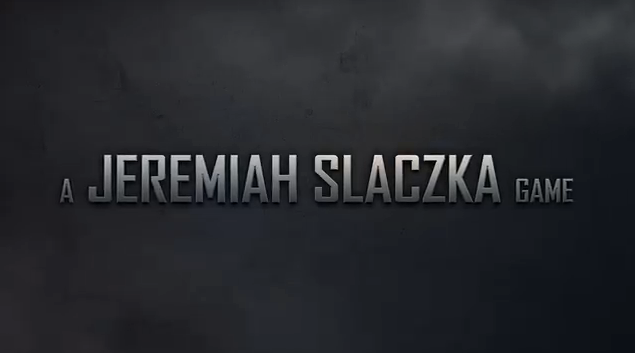

It’s only been a month since kicking off a new feature here at Giant Bomb, an ongoing letter series between myself and interesting game designers, where we talk through pretty sensitive topics.
That’s the opening paragraph I wanted to write in February, but it never happened. It turns out finding people to sit down and write at length about a topic can be pretty difficult and time consuming! But I didn’t want to force topics, and didn’t want to pick the wrong developers. I wanted to take my time, since the initial conversation I had with Mass Effect 3 designer Manveer Heir proved so much fun.
Eight months later, I can finally introduce the second part in this series, which I’ll go ahead and claim is an ongoing feature. There’s two of them now, so that counts, right? This time, I’m writing back-and-forth with 5th Cell creative director and co-founder Jeremiah Slaczka. 5th Cell is currently gearing up to release Scribblenauts Unlimited in November, the first time the studio will have a fresh game for a new hardware launch.
We aren’t talking about reviews or the role of a critic, writer, and journalist. When 5th Cell launched Hybrid on Xbox Live Arcade earlier this year, I noticed a pattern with 5th Cell releases. The games were branded as “a Jeremiah Slaczka game.” This wasn’t the first time 5th Cell had run with that tagline, and it got me thinking. Video games are, by nature, a collaborative enterprise, so what does it mean when a developer puts their name on the game? Does that impact the mindset of the rest of the company? Not many developers put their name front-and-center. Why?
These questions and others were weighed and debated during our two-part exchange, and I’m happy to bring you part one today. Part two is on Monday. I've also linked to the three-part feature on reviews from January. Enjoy!
- On Games, Reviews, And Criticism -- Part 1
- On Games, Reviews, And Criticism -- Part 2
- On Games, Reviews, And Criticism -- Part 3
Hey Jeremiah,
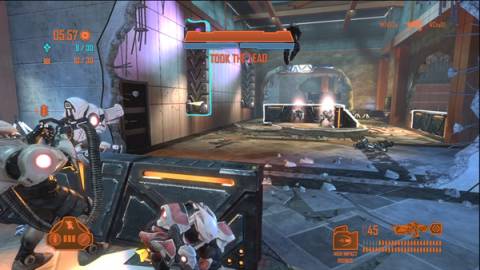
Or should I call you Miah? Either way, I want to thank you for participating in my second letter series here at Giant Bomb. I wasn’t sure when (or if) we’d have another one. It requires a certain kind of developer open to a certain kind of conversation. It’s not something that would work if it was forced.
Then, I saw the latest trailer for the impressive-looking Hybrid, which closed with this tagline:
“A Jeremiah Slaczka Game”
That’s ballsy, bold. You’re self-publishing Hybrid, so I knew this was a deliberate choice on your part, and not a check-box on a marketing campaign. I wasn’t exactly surprised by the decision, either.
A Tim Schafer Game: Brutal Legend. A Suda 51 Trip: Shadows of the Damned. Richard Garriott’s Tabula Rasa. John Romero’s Daikatana. Roberta Williams' Phantasmagoria. American McGee’s Alice. Sid Meier’s … well, almost anything--take your pick. Mike Tyson’s Punch-Out? The concept of branding games with talent has gone back-and-forth for years. Electronic Arts made a huge push for its creative powerhouses in the 90s, and it’s come back in forms since. Sometimes, the names most associated with the game do not get any special presentation treatment, like (now formerly) Epic Games’ Cliff Bleszinski. You won’t find him on the box for Gears of War, even if most players know him best.
Correct me if I’m wrong, but you’ve been making games since 2003, right? You began making waves with Drawn to Life, as 5th Cell established itself while doing some especially inventive things with the DS. I’m willing to bet most people didn’t pay specific attention to “you” until Scribblenauts, when it was clear 5th Cell was a studio interested in doing things differently. That’s not meant to diminish anything you’d accomplished before then--you know I’m a fan of 5th Cell’s work. That said, the Scribblenauts trailer doesn’t have your name attached to it, nor does Super Scribblenauts.
It seems like something changed with Hybrid, and I’m curious what that thing is.
The traditional reaction to assigning single authorship is that games are not like other forms of media. You credit J.K. Rowling with Harry Potter because, well, she wrote the whole damn series. A big team may come together to produce the new Steven Speilberg or David Fincher film, but the reason those movies are then touted as new works from a single individual is because those mediums better lend themselves to a single person having enough of an impact on the entire process. In film, it’s called auteur theory, relating to an artist’s personal vision. You know you’re watching an Alfred Hitchcock film because Hitchcock has such a distinctive style. No one else could have made this film.
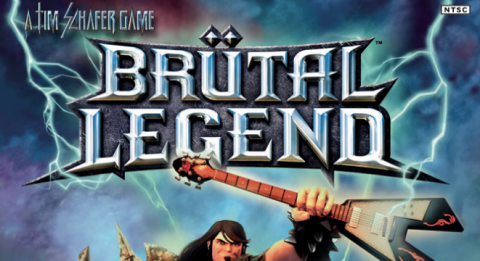
Is that the same for video games? I’m not sure, with obvious outliers like Tim Schafer. In games, studios have traditionally reaped the acclaim. People anticipate the new game from Epic Games, the creators of Gears of War, or the new universe from Bungie Studios, the makers of Halo. The people manning those studios changes all the time, though. Look at Starbreeze, a studio that became known because of The Chronicles of Riddick and The Darkness, but most of the lead creative talent left and formed another developer. Still, Starbreeze went on, made Syndicate, and people seem to dig it. It’s hard to tell where (or if) to draw the line, as games have an additional layer of authorship: the player.
Even with a filmmaker as beloved as Spielberg, when he announced plans to make Stanley Kubrick’s abandoned film, A.I., people flipped. Some never got over the idea. I wonder what would happen if another game developer had the unenviable task of making Shigeru Miyamoto’s unfinished opus.
Why is 5th Cell different? 5th Cell is also not as big as those developers, which must have an impact.
I want to hear how this decision came about, and whether I’m overthinking it. Maybe this wasn’t a big deal at 5th Cell, but to me, that’s a big deal in and of itself! You’ve been cultivating a certain kind of studio culture at 5th Cell over the years, as your company moves from a tiny thing into a much bigger force. Hybrid is the biggest step in that direction, and I’m sure there’s more to come. Saying that Hybrid is “A Jeremiah Slaczka Game” implies it’s more than just setting the tone for the project.
Looking forward to hearing your thoughts on the subject, Jeremiah.
Take care,
Patrick
Hey Patrick,
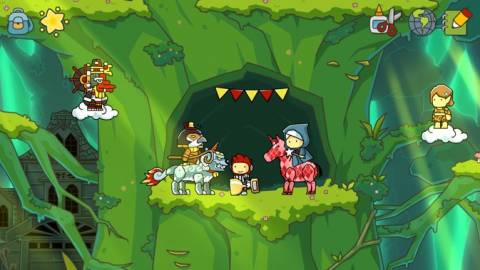
Thanks for giving me the opportunity to participate in this, and you can call me Miah, everyone I know does.
However, before we get into dissecting the reasoning behind whether or not someone should list their name as a brand attached to a game, we should get something out of the way first. When you see “A game by Jeremiah Slaczka”, it is not the same as “A Game Solely Made by Jeremiah Slaczka.” Yes, I drive the vision behind the title and our company, both, in the trenches working with everyone, and on a high level. But my ideas don’t mean anything without an amazingly talented team behind me. Every department at 5th Cell is full of people that are driven to succeed, are immensely passionate, extremely dedicated, very humble and just plain fun to work with.
I’m not offering this up as a platitude. These people are 5th Cell’s lifeblood. A great example is when we decided to go from 30FPS to 60FPS in Hybrid. Sure I gave the initial order, but the rest had to be done by our programmers, artists and level designers firing on all cylinders to get it there. That wasn’t me; that was them. They worked their tails off because they believe in the vision of the game and the company.
We have another team working on an unannounced game and they are just kicking ass on that, too. So much effort has been put into both of our projects because these people care.
In the same way “A Film by Steven Spielberg” isn’t saying that a movie is solely created by the Director. There’s a reason that there are Academy Awards for Set Design, Special Effects, Cinematography, Acting, Costume Design, Make-Up, Screenplay, Music and Sound among and others. Those roles were integral to making an amazing movie and they weren’t all handled by the same person. Without very talented, key people in these roles the film would never have come out as good as it did. However, the “auteur theory” that modern Hollywood subscribes to is a style in which the Director has the final decision making authority, and it’s his (or her) creative vision and voice that shines through the large scale, industrial process that is commercial film making.
A lot of game studios are run by “design by committee,” or specifically through analytics and data. There’s no single voice, or clear direction of leadership--someone at the top guiding the team and the project to fit their vision. There’s nothing wrong with that way of running a studio, but our studio has never run or been set up that way. I think this is where the potential for backlash comes from. A lot of people think there is a correct way to run a studio, or to work a project. But we’ve been successful this way, and other studios have been successful using other methods, so obviously there’s different ways to skin a cat.

Also many companies are tech driven; they build amazing engines and then make games from those engines. We, on the other hand, think of the game idea first then build the tech around it--which is much harder because we’re constantly switching tack. We went from quirky, 2D, handheld games to a 3D competitive multiplayer shooter, because that’s the game we wanted to make. It’s a testament to our technical staff and their ability to change and iterate so well. Lastly, and most obviously there’s huge potential for mismanagement and wrongful leadership when you give one person that kind of auteur authority. You have to trust that person’s ability to lead and their ability to conceptualize their vision when the title hasn’t even begun, and to understand what parts of that vision must remain unchanged and what parts will need to adapt through the project.
What works for us is to have a very clear vision and direction--and that direction since we were founded has come from me. The games we’ve made and the high level concepts we started out with have always lined up. Every studio is different, but this is what has worked for us. And just because I’m the one directing the vision doesn’t mean only my ideas get in, we always listen to ideas from anyone. If it makes the product better and fits in the schedule I’m all for it. But someone needs to be the person to weight whether or not it does gel with the vision.
Now as far as the branding of my name goes, yes, you are right. We were founded in 2003 and while Drawn to Life was our first million-selling title it was Scribblenauts that put us on the map. But, the Scribblenauts Debut Trailer did have my name on it. The trailer showed the 5th Cell logo, and then “From Creative Director Jeremiah Slaczka” followed by “And the team that brought you Drawn to Life™ and Lock’s Quest™”. By then I had led and designed a few big games and felt confident that I could begin to build a brand. Super Scribblenauts didn’t need my name because I became so associated with the franchise by then that it was just unnecessary. When we shipped Run Roo Run in 2011 is when we first used the labeling “A game by Jeremiah Slaczka.”
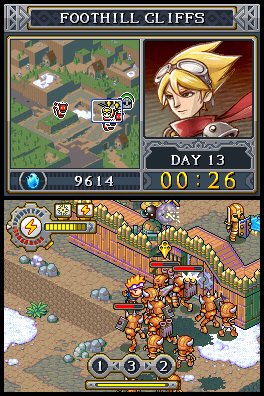
This decision was based on helping people associate the brand of 5th Cell with a person. Associating with a company is much harder to do than associating with a person. That’s because companies don’t make great games - in fact companies don’t do anything at all because they only exist in a legal sense. Talented people make great games. And the people we’ve hired are the talent that supports my ideas and my leadership.
When I put my name on the product, I’m not just sticking my own neck out there. I’m sticking the whole company out there. The game could be a huge flop. I’m not attaching my name to proven, successful ideas after the fact; I’m doing it before it’s a success. I believe in what we’re doing.
And to answer the last part of your question, personal branding does more than just strengthen business relationships, and get better deals for your company, it also helps to bring in some of the best talent available. When someone knows you and your work, they know who they are dealing with, are more comfortable with it, and want to be a part of it.
This isn’t for everyone, but for people who run their projects the way I do, they should brand themselves. We need power of the industry to be put back into the hands of the creative and away from the hands of the money--money that usually doesn’t even play the games they are publishing. I hope more people latch on to this idea. I just hope the people who do it, aren’t talking the talk without walking the walk, because that’s where the problems lie.
Best,
Miah
Log in to comment